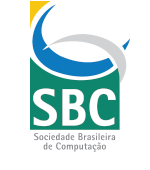Call for Papers
Important Dates
-
JULY 15, 2020 – PAPER SUBMISSION OPENS
AUGUST 21, SEPTEMBER 4,SEPTEMBER 18, 2020CLOSED – DEADLINE FOR PAPER SUBMISSION
-
SEPTEMBER 30,
OCTOBER 9, OCTOBER 14, 2020 – NOTIFICATION OF ACCEPTANCE -
OCTOBER 7,
OCTOBER 16, OCTOBER 20, 2020 – CAMERA-READY VERSIONS OF PAPERS DUE -
NOVEMBER 23-27 – ONLINE MEETING
As in past years, BSB 2020 will accept both full papers (for oral presentation) and short papers. Proceedings containing accepted full and short papers will be published as a volume in the Lecture Notes in Bioinformatics series, from Springer.
TOPICS INCLUDE (BUT ARE NOT LIMITED TO):
- Machine Learning applications in Bioinformatics
- Molecular Sequence Analysis, Motifs, and Pattern Matching
- Biological Databases, Data Management, Data Integration, and Data Mining
- Big Data applications in Bioinformatics
- Structural and Functional Genomics
- Gene Identification, Regulation, and Expression
- Comparative Genomics
- Protein Structure and Modeling
- Computational Proteomics
- Gene and Protein Networks
- Molecular Evolution and Phylogenetics
- Computational Systems Biology
- Statistical Analysis of Molecular Sequences
This year, contributions related to bioinformatics as applied to SARS-Cov-2 and COVID-19 are especially welcome.
PROGRAM COMMITTEE CHAIRS:
- João C. Setubal (University of São Paulo, Brazil)
- Waldeyr Mendes (Federal Institute of Goiás, Brazil)
PROGRAM COMMITTEE:
- Alberto Davila, FIOCRUZ, Brazil
- Alessandro Varani, UNESP, Brazil
- Alexandre Rossi Paschoal, Federal University of Technology, Paraná, Brazil
- Andre de Carvalho, University of São Paulo, Brazil
- Andre Fujita, University of São Paulo, Brazil
- Bas E. Dutilh, CMBI/NCMLS/UMCN, Utrecht University, Netherlands
- Daniel de Oliveira, Fluminense Federal University, Brazil
- Daniel Pinheiro, University of São Paulo, Brazil
- David Pires, Butantan Institute, Brazil
- Deyvid Amgarten, University of São Paulo, Brazil
- Eduardo Reis, University of São Paulo, Brazil
- Fábio Henrique Viduani Martinez, Federal University of Mato Grosso do Sul, Brazil
- Fabrício Martins Lopes, Federal University of Technology, Paraná, Brazil
- Felipe A. Louza, Universidade Federal de Uberlândia, Brazil
- Felipe Lima, Federal Institute of Alagoas, Brazil
- Fernando Luís Barroso Da Silva, University of São Paulo
- Guilherme Telles, University of Campinas, Brazil
- Jefferson Morais, Federal University of Para, Brazil
- Jhonatas Monteiro, University of São Paulo, Brazil
- João Meidanis, University of Campinas, Brazil
- José Patané, Butantan Institute, Brazil
- Kleber Padovani De Souza, Universidade Federal do Pará, Brazil
- Laurent Brehelin, Laboratoire d’Informatique Robotique et Microélectronique de
Montpellier, France - Luciano Antonio Digiampietri, University of São Paulo, Brazil
- Luís Cunha, Fluminense Federal University, Brazil
- Luis Kowada, Fluminense Federal University, Brazil
- Marcel da Câmara Ribeiro-Dantas, Institut Curie, France
- Marcelo Brigido, University of Brasília, Brazil
- Marcilio De Souto, Laboratoire d’Informatique Fondamentale d’Orléans (LIFO), University
of Orleans, France - Maria Emília Machado Telles Walter, University of Brasília, Brazil
- Mariana Recamonde-Mendoza, Federal University of Rio Grande do Sul, Brazil
- Marilia Braga, Bielefeld University, Germany
- Maristela Holanda, University of Brasília, Brazil
- Nalvo Almeida, Federal University of Mato Grosso do Sul, Brazil
- Natalia Martins, Embrapa Genetic Research and Biotechnology, Brazil
- Raquel Melo-Minardi, Federal University of Minas Gerais, Brazil
- Ricardo Cerri, Federal University of Sao Carlos, Brazil
- Rommel Ramos, Federal University of Pará, Brazil
- Ronaldo Fumio Hashimoto, University of São Paulo, Brazil
- Ronnie Alves, ITV Sustainable Development, Brazil
- Sadegh Sulaimany, University of Kurdistan, Iran
- Said Sadique Adi, FACOM, Federal University of Mato Grosso do Sul, Brazil
- Sérgio Campos, Federal University of Minas Gerais, Brazil
- Sergio Lifschitz, PUC-Rio, Brazil
- Sergio Pantano, Institut Pasteur de Montevideo, Montevideo, Uruguay
- Ulisses Dias, Institute of Computing, University of Campinas, Brazil
- Valdir Veiga-Junior, Military Engineering Institute, Rio de Janeiro, Brazil
- Zanoni Dias, Institute of Computing, University of Campinas, Brazil
Submission instructions
The submissions should contain original, high quality, not submitted, or published-elsewhere work. All submissions must be in English.
The format to be used is “Lecture Notes in Computer Science” (LNCS). Authors should consult Springer’s authors’ guidelines and use their proceedings templates, either for LaTeX or for Word, for the preparation of their papers. The actual submission must be in PDF format (maximum 20 Mb). LaTex or Word versions (on which the PDF must be based) will be required later, for accepted papers, for inclusion in the LNBI proceedings. Springer encourages authors to include their ORCIDs in their papers.
In addition, the corresponding author of each paper, acting on behalf of all of the authors of that paper, must complete and sign a Consent-to-Publish form. The corresponding author signing the copyright form should match the corresponding author marked on the paper. Once the files have been sent to Springer, changes relating to the authorship of the papers cannot be made.
We strongly recommend all prospective authors to download the necessary files from this site as they prepare their submissions for BSB 2020; old versions of the LNCS style files could cause problems in the upload of the camera-ready paper.
Categories of contributions
BSB2020 will accept two categories of contributions:
- Full papers — up to 12 pages LNCS style, oral presentation.
- Short papers — up to 6 pages LNCS style
For full papers, manuscript length (including all figures, tables, and references) should not exceed 12 pages. For short papers, manuscript length (including all figures, tables, and references) should not exceed 6 pages.
Manuscripts that deviate significantly from these guidelines may risk rejection without consideration of scientific merit.
Full paper submission will be done using the EasyChair system.
Short paper submission must be done using the JEMS system.
Submission policy
By submitting a full paper to BSB 2020, the authors agree that in case of acceptance, at least one author has to register to the conference and present the paper.
